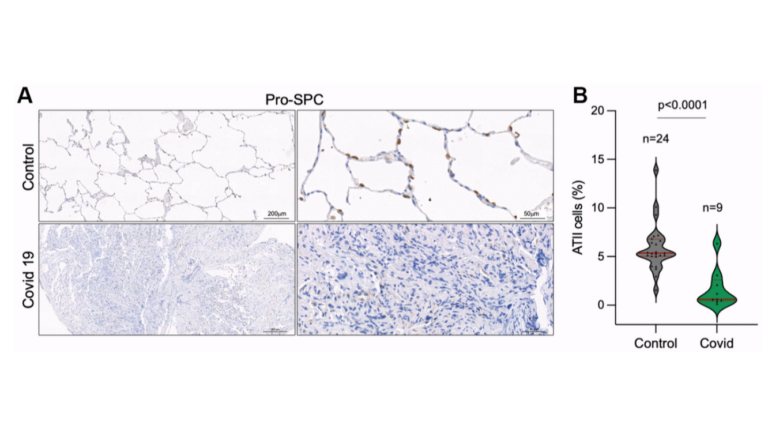New Study Reveals Genetic Risk Factors for Cancer in Saudi Arabia
Oncotarget, Trending
June 16, 2023Familial cancer is a fearsome reality for millions of people worldwide. While some cases of familial cancer syndrome (FCS) may be influenced by shared environmental or lifestyle factors within a family, others are solely due to genetic mutations passed down through generations. This problem is especially prevalent in Saudi Arabia—where rates of familial cancer are among the highest in the world.
“Cancer increased in the Kingdom of Saudi Arabia by 136% between 1999 and 2015 [4].”
Approximately 20% of all Saudi Arabian cancer patients have a family history of cancer. This population is likely to carry mutant alleles, presenting an opportunity for further exploration and research. By studying these individuals and their genetic profiles, scientists and healthcare professionals can gain valuable insights into the genetic factors contributing to familial cancer in the Saudi Arabian population. This knowledge can help improve risk assessment, develop targeted prevention strategies, and potentially lead to more effective treatments for familial cancer cases.
In a new study, researchers Musa AlHarbi, Nahla Ali Mobark, Wael Abdel Rahman AlJabarat, Hadeel ElBardis, Ebtehal AlSolme, Abdullah Bany Hamdan, Ali H. AlFakeeh, Fatimah AlMushawah, Fawz AlHarthi, Abdullah A. AlSharm, Ali Abdullah O. Balbaid, Naji AlJohani, Alicia Y. Zhou, Heather A. Robinson, Saleh A. Alqahtani, and Malak Abedalthagafi from King Fahad Medical City, Color Health Inc., University of Manchester, Johns Hopkins University, King Faisal Specialist Hospital and Research Center, and Emory University Hospital conducted a next-generation sequencing (NGS) assessment for hereditary cancer risk in a Saudi Arabian population. Their research paper was published in Oncotarget on June 12, 2023, entitled, “Investigating the prevalence of pathogenic variants in Saudi Arabian patients with familial cancer using a multigene next generation sequencing panel.”
The Study
The researchers used a 30-gene, targeted NGS panel to screen 310 subjects, including 57 non-cancer patients, 110 index patients with cancer and 143 of their relatives, 16 of whom also had cancer. (“Index patients” refers to individuals who are the first in a family to be diagnosed with a particular disease or condition of interest.) The NGS panel covered genes related to breast, ovarian, colorectal, endometrial, gastric, pancreatic, prostate, thyroid, renal, and skin cancers, as well as familiar adenomatous polyposis (FAP) and Lynch syndrome.
“This kit has been previously trialed as a means of capturing potential PVs [pathogenic variants] at a population level in Nigeria and the Caribbean, and in identifying rare variants in cancer patients who have tested negative for common cancer variants [35–38].”
The results showed that 119 subjects (38.4% of the cohort) carried pathogenic or likely pathogenic variants (PVs) affecting genes associated with hereditary cancer risk. (TP53, ATM, CHEK2, CDH1, CDKN2A, BRCA1, BRCA2, PALB2, BRIP1, RAD51D, APC, MLH1, MSH2, MSH6, PMS2, PTEN, NBN/NBS1, and MUTYH were identified as genes with pathogenic or likely pathogenic variants.) Among 126 patients and relatives with a history of cancer, 49 subjects (38.9%) carried pathogenic or likely pathogenic variants. Two specific variants (APC c.3920T>A and TP53 c.868C>T) were significantly associated with the occurrence of colorectal cancer/Lynch syndrome and multiple colon polyposis. Diverse variants in BRCA2, many of which were previously unreported as pathogenic, were found at a higher frequency in individuals with a history of cancer compared to the general patient population. Overall, these subjects had more genetic variants associated with familial cancers compared to other populations.
Conclusion
“In conclusion, this study is one of the first to report the prevalence of inherited cancer genetic variants in a cohort from the Arab world. Our study gives critical first insights into the genetic variants associated with overall cancer risk in this specific population, and specific forms including CRC/Lynch syndrome and breast cancer.”
The researchers concluded that their study was the first to use a comprehensive NGS panel for FCS risk assessment in Saudi Arabia and that it provided valuable insights into the genetic landscape of cancer in this population. They also acknowledged some limitations of their study, such as the small sample size, the lack of clinical data for some subjects and the possibility of false negatives due to technical or analytical issues. Overall, this study highlighted the importance of genetic testing and counseling for FCS in Saudi Arabia, where consanguineous marriages are common and may increase the risk of inheriting cancer-associated alleles from both parents. These findings also suggested that knowing the genetic profile of patients and their families could help tailor preventive strategies and treatments according to their specific risks.
“Whilst a larger population level study is still needed, we demonstrate that multigene NGS panel testing may serve as non-invasive diagnostic and cost-effective tool to predict familial cancer risk at the pre-clinical stage, allowing targeted screening and enabling early intervention.”
Click here to read the full research paper in Oncotarget.
—
Oncotarget is an open-access, peer-reviewed journal that has published primarily oncology-focused research papers since 2010. These papers are available to readers (at no cost and free of subscription barriers) in a continuous publishing format at Oncotarget.com. Oncotarget is indexed/archived on MEDLINE / PMC / PubMed.
Click here to subscribe to Oncotarget publication updates.
For media inquiries, please contact media@impactjournals.com.

